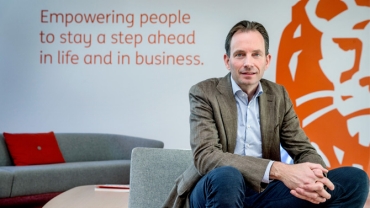
The three major challenges for the financial professional
The future of the financial professional
The Future of Finance, and in fact everything that can be preceded by “The Future of…” – such as work, mobility, banking – currently comprises a great and almost magical promise. A lot of companies are relying on technology as the key means of advancing the work of the financial professional to the next level. But if you want to face the future with confidence, you need to look beyond just technology. The three main challenges currently facing a CFO are to respond effectively to technological and also organisational changes, to distil meaningful information from vast amounts of data, and to put together a team made up of people with the right skills for utilising the data and the technological developments in the best possible way for the good of the company.
Challenge 1: Responding effectively to technological and also organisational changes
The world is getting bigger, and competition more dynamic. And technology is making things possible that couldn’t be done before. As a result, the way of doing business is changing more and faster than it ever did in the past. Organisations need to go along with these changes, and CFOs are expected to keep up with and support them as much as possible. They need to be prepared for them and respond faster than ever before. Doing so demands immediately available state-of-the-art knowhow and flexibility, as well as the courage to depart from the beaten track and explore new possibilities. CFOs need to leave their familiar comfort zone to acquire new knowledge and new skills – technical, digital – to enable their organisation to respond effectively to changes by means of process improvements and target operating models. In the work of the financial professional, transaction processing, for example, can be made infinitely more efficient by means of robotics, cloud ERP systems, artificial intelligence, and blockchain. But before the financial professional can get down to work with robotics, cloud computing, or data analytics – and before the new system can function and perform at its best – all the data and processes must be standardised.
Challenge 2: Distil meaningful information from vast amounts of data
The second major challenge is for CFOs to be able to distil meaningful information from vast amounts of data. Whereas in the past financial reporting and, increasingly, management reporting were important, CFOs nowadays have to extract as much information as possible from all that vast amount of data which they didn’t realise was meaningful. The great and almost magical promise of new technologies and raw computing power enables them to do things today that seemed impossible even just a few years ago. Enormously powerful analysis tools distil valuable, ready-to-use information from oceans of data, allowing the financial professional to be more forward-looking and specific in guiding management decisions. Anyone who wants to face the future with confidence must first ensure that the available data and data structures are no longer inconsistent, and thus gain in reliability.
Challenge 3: Employees with the right skills
A lot of organisations, however, are struggling with non-harmonised data and processes, often due to a lack of data ownership within the organisation. If there’s nobody who oversees the entire process, inconsistent data and processes will remain in place and the organisation will be unable to utilise advanced data analysis techniques. New technologies then remain just gimmicks, and don’t deliver what they’re supposed to. It’s therefore advisable to designate someone as responsible for streamlining data structures within the organisation. That brings us to the third major challenge for CFOs: they need to be able to put together a workforce that can keep up with the new developments. Unlike when the traditional bookkeeper used to play the leading role in financial work, the financial professional of the future will need many more people who can handle vast volumes of data, robotics, analytics, and blockchain so as to deploy them in the best possible way for the good of the company. In addition, the boundaries between various operational fields such as marketing, sales, and HR will steadily disappear. Instead of thinking in terms of sub-departments, organisations will need to increasingly think in terms of customer processes, as their base for decision-making and often also for offering improved products. I foresee an important role for the financial professional in all this, because Finance is the mirror of the primary processes within the organisation. After all, every stage in those processes – such as purchasing, storage, and sales – finds its way into the accounting. Finance is pre-eminently able to take on a connecting role between the various departments.
Ready for the future
Anyone who wants to get their organisation ready for the future can’t escape the obvious need to “fix the basics”. But once the data and the processes have been “fixed” and linked to effective systems, and the company also has people with skills needed to work with them, then the future can really get started. Finance will then be ready to move quickly and smoothly, utilising agile business models in which astonishingly accurate forecasts drive business, closing the books at the end of a month involves just pushing a button, and annual closing takes just a few days. And that’s all quite apart from all the yet unknown possibilities, which in their turn will become The Future of Finance.
In this podcast (Dutch), Alexander Staal, Finance transformation leader PwC, discusses the three most important challenges facing the finance professional. Listen to the podcast now.

More visions on the future of the financial function:
Contact us


















